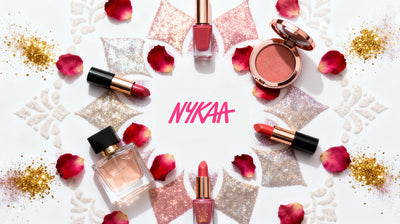In This Article
The Indian D2C market is projected to reach $60 billion by 2027, growing at a CAGR of over 40% [Inc42, 2024, The Week, 2024].
At the same time, Gen Z is becoming the most influential consumer group, with 400+ million individuals in India and global spending power surpassing $360 billion [Statista, 2024; YourStory, 2024].
The reason that this shift is different is that Gen Z isn’t reacting to the same old brand playbook of TV ads and celebrity endorsements. Instead, they buy into Reels, memes, micro-influencers and creator-led storytelling. It also means that for brands, the processes of growing are no longer driven by “buying” attention; rather, it’s about the currency of trust, the necessity to co-create with cultural communities, and to stay plugged into culture.
In this context, Gen Z creators are redesigning the discovery, trust, and scale of D2C brands.
From Browsers to Buyers: The Gen Z Influencers Driving Purchase Power
Influencers, meme-creators and storytellers are not only “content collaborators” any more. They’re the force behind D2C growth.
Micro and Nano Influencers generate 60% More Engagement Than Celebrities [Bain, 2023]. This authenticity is more valuable than paid endorsements for Gen Z.
-
Sugar Cosmetics scaled its community by celebrating diversity with its campaigns and incorporating elements of pop culture in its brand DNA.
-
The Souled Store embraced meme marketing and limited-edition drops, making their fans feel a vital part of the brand-building process.
This makes it possible for D2C brands to build in 3 – 4 years what would take the FMCG giants decades to develop.
Gen Z Spending Power: Digital Natives re-defining Consumption
To Gen Z, digital isn’t a channel, it’s the air they breathe.
-
In India, 70% of Gen Z customers choose shopping online than the stores offline [Deloitte, 2024].
-
70% find new brands through social media channels, Instagram Reels and YouTube Shorts are leading the new brand discovery [McKinsey, 2023].
-
UPI based payments increased by 54% (year-on-year) in 2023 proving how effortlessly Gen Z interweaves commerce in everyday digital living [NPCI Data, 2023].
This isn’t consumption of culture, it’s cultural participation. When a sneaker drop is announced on a Reel?It can be sold out within hours because purchasing is part of the trend cycle.
Value-Driven and Socially Engaged
Gen Z doesn’t just shop- they examine. They seek authenticity, inclusivity and sustainability.
A study has found that 73% of Gen Z is ready to pay extra for eco-friendly goods [First Insight, 2023].
-
They reward brands that use eco-friendly packaging, have transparent supply chains and feature diverse representation.
-
And they check brands’ promises against their actions.
For this generation, values aren’t a marketing tactic - they’re table stakes. Brands that treat sustainability and social purpose as afterthoughts do so at their own peril.
Omnichannel Meets "No-Channel"
Gen Z’s shopping journey is messy, cross-platform and fast: Instagram → website → live shopping → offline pop-up.
McKinsey refers to this as “liquid retail”, with 70% of Gen Z demanding a consistent brand experience at every brand touchpoint [McKinsey, 2023].
Winners are brands that thread discovery, engagement, and purchase into one frictionless, fun flow.
Personalization as Identity
For Gen Z, personalization is more than just showing the right product; it’s co-creation.
-
Nike By You supports sneaker customization.
-
Glossier created products through feedback and poll-taking on community forums.
This creates identity-based loyalty. And purchasing from a D2C brand is as much a statement of self-expression as it is a statement of consumption.
Conclusion: The Future of D2C Belongs to Gen Z-led Companies
The ascendancy of Gen Z as creators, curators and consumers is not a trend - it’s the new OS for brands. Gen Z, in 2030, will account for 40% of all consumer s worldwide [Accenture, 2024]. Their demand for authenticity, velocity, personalization and values-driven commerce will dictate which D2C brands succeed and which will fall.
The message is clear for D2C founders and marketers:
-
Stop acting like advertisers.
-
Begin to behave like community creators and culture shapers.
Brands that create a space for Gen Z in their story world won’t just sell things; they’ll start movements. And in this new world of commerce, it’s movements that build lasting brands.




